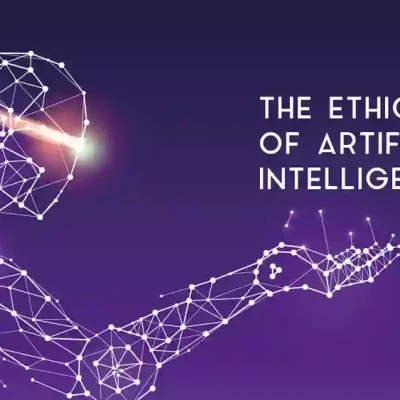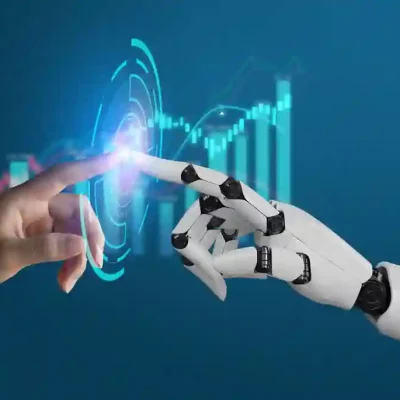Artificial Intelligence (AI) is evolving at an unprecedented pace, shaping the way we live, work, and interact with the world. As we look toward the future, several trends are emerging that are set to redefine the landscape of AI. From advancements in machine learning to the ethical considerations surrounding AI deployment, the future of artificial intelligence holds immense promise and poses intriguing challenges. In this article, we explore key trends that are shaping the future of AI.
1. Advancements in Machine Learning:
Machine learning, a subset of AI that enables systems to learn from data, is at the forefront of AI advancements. In the future, we can expect more sophisticated machine learning algorithms that can handle complex tasks, make better predictions, and adapt to dynamic environments. The evolution of unsupervised learning, reinforcement learning, and deep learning models will contribute to the development of AI systems with enhanced capabilities.
Insight: Advancements in machine learning will lead to more intelligent and adaptive AI systems, capable of addressing complex problems across diverse domains.
2. Explainable AI:
As AI systems become more intricate, there is a growing need for transparency and interpretability. Explainable AI (XAI) aims to make the decision-making process of AI models more understandable for humans. This trend will become increasingly important, especially in critical applications such as healthcare, finance, and autonomous vehicles, where trust and accountability are paramount.
Insight: Explainable AI will play a crucial role in building trust and ensuring that AI systems are accountable and understandable, reducing the “black box” nature of complex algorithms.
3. AI for Good:
The future of AI is not just about technological advancements but also about leveraging AI for societal benefit. AI for Good initiatives focus on using artificial intelligence to address global challenges, including healthcare, education, climate change, and poverty. From developing AI-driven healthcare diagnostics to enhancing accessibility in education, the ethical application of AI is poised to make a positive impact on society.
Insight: AI for Good represents a shift toward using artificial intelligence as a force for positive change, fostering innovation to tackle pressing global issues.
4. Edge AI:
Edge computing involves processing data near the source of data generation rather than relying on a centralized cloud infrastructure. Edge AI takes this concept a step further by deploying AI models directly on devices, reducing latency and improving efficiency. This trend is particularly relevant for applications such as Internet of Things (IoT), where real-time decision-making is essential.
Insight: Edge AI enables faster and more efficient processing of data, making it well-suited for applications that require low latency and enhanced privacy.
5. AI in Cybersecurity:
As cyber threats become more sophisticated, AI is playing a crucial role in fortifying cybersecurity measures. AI algorithms can analyze vast amounts of data to detect patterns indicative of cyberattacks, identify vulnerabilities, and enhance threat detection capabilities. The future will likely see an increased integration of AI in cybersecurity to stay ahead of evolving cyber threats.
Insight: AI’s ability to analyze large datasets in real-time enhances cybersecurity measures, providing a proactive approach to identifying and mitigating potential threats.
6. Ethical AI and Bias Mitigation:
As AI systems influence various aspects of our lives, the need for ethical considerations becomes paramount. Addressing biases in AI algorithms and ensuring fairness in decision-making processes are critical challenges. The future of AI will involve ongoing efforts to mitigate biases, enhance fairness, and establish ethical guidelines for the responsible development and deployment of AI systems.
Insight: Ethical considerations and bias mitigation efforts will shape the development and deployment of AI, ensuring that AI technologies align with principles of fairness and justice.
7. AI in Creativity:
AI is expanding its role in creative endeavors, including art, music, and content creation. Generative models and algorithms can produce artwork, compose music, and even generate content that mimics human creativity. This trend opens up new possibilities for collaboration between humans and AI in creative fields, challenging traditional notions of artistic expression.
Insight: AI’s role in creativity offers a fusion of human ingenuity and machine capabilities, expanding the horizons of what is possible in artistic and creative endeavors.
8. Quantum Computing and AI:
Quantum computing holds the potential to revolutionize AI by exponentially increasing processing power. The ability to perform complex calculations at unprecedented speeds could lead to breakthroughs in optimization problems, machine learning algorithms, and simulations. While quantum computing is still in its early stages, its synergy with AI is an exciting prospect for the future.
Insight: Quantum computing has the potential to transform the capabilities of AI, opening new avenues for solving complex problems that are currently beyond the reach of classical computers.
Conclusion:
The future of artificial intelligence is a dynamic landscape marked by continuous innovation, ethical considerations, and the integration of AI into diverse aspects of our lives. As we navigate this frontier, the responsible development and deployment of AI technologies will be crucial to ensuring positive societal impacts.
Embracing the transformative power of AI while addressing challenges such as explainability, ethical considerations, and bias mitigation will shape the trajectory of artificial intelligence. By fostering a collaborative approach that involves technologists, policymakers, ethicists, and the broader public, we can harness the potential of AI to create a future where intelligent systems contribute to human well-being and address complex global challenges. As AI continues to evolve, staying informed and actively participating in the ongoing dialogue surrounding its development will be key to shaping a future where artificial intelligence serves humanity’s best interests.






